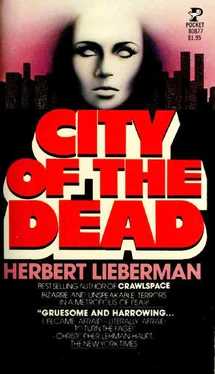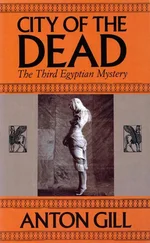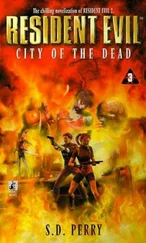Tilting his beer back, his eyes, above the rim of his glass, swarm over the area. At the Esquire stand he spies a portly fellow having a shoeshine while his eyes appear to devour a racing form. That is, he recognizes, Detective Sergeant Donnello of the 41st Precinct. A short distance away, at the Nedick’s juice stand, wolfing a frankfurter and an orange drink, is Freddie Zabriskie from the 23rd. He wears a trench coat and a peaked checkered cap. With his attaché case and his slightly agitated manner, he gives the impression of a harried commuter grabbing a bite before boarding a train.
Working behind the baggage pick-up counter, in red cap, looking flushed and jovial, is Wershba’s very own Morrissey from the 17th; while a little way down the concourse, the thoroughly unsavory-looking creature, complete with foul clothes and a long, licey beard, is young Sam DeSoto, a man with whom Haggard has never worked. It always makes him uneasy, working with someone he doesn’t know. And this DeSoto is young, little more than a novice. But his record is outstanding. Already he has made a quick name for himself at the 41st. Right now he appears to be loitering there for vaguely immoral purposes.
Haggard orders a second beer, nibbles a hard-boiled egg from the free-lunch counter, and prepares for a long siege.
It is a game of watching now. If they come at all, the detective reasons, it will be after the lunch hour, when the crowds thin out. Then people still lingering there will be conspicuous by their presence. For this reason Haggard and his small force have worked out a plan of rotation. If no one shows at locker 2384 within an hour, Haggard will leave the Savarin bar and stroll outside to a waiting unmarked police car where, by means of radio and highly sophisticated transponding equipment, he will maintain contact with the other four men still inside.
Donnello, his shoes now shined, has already left. But he’s gone only a short way off—up to the mezzanine by the Ticketron booth that juts out above the main station. He cannot see the bank of lockers from that point. Nor can anyone in that area see him. But he can see Morrissey working behind the baggage counter and Morrissey can see him easily enough to make the most innocuous of hand gestures abundantly clear.
Freddie Zabriskie has now strolled to a magazine stand and proceeds to thumb through Playboy and Penthouse beneath the hostile glare of the newsstand attendant. Soon he too will go. And then, finally, DeSoto. That will leave only Morrissey, who, because of his official position behind the baggage counter, can remain indefinitely without raising suspicion. Then, if no one has shown by 1:15 to pick up the bag, a whole new platoon of four will take over. Four new faces, completely unrecognizable to anyone who happens to be somewhere in the vicinity watching.
By 1 p.m. Haggard is still leaning up against the bar at the Savarin. Other than Morrissey, he is the last of his group still there. Though he will wait until 1:15 as planned, he does not seriously think anyone will show. Not this first time anyway. This is merely a test to see how Konig will perform, and that, he is sure, they are closely monitoring. For, if it were to become apparent to Meacham’s people that the area around the baggage lockers was staked out, or if, indeed, they did send a pick-up man and it became evident that the man was being followed, Lauren Konig’s life wouldn’t be worth a plugged nickel. Haggard knows there are two things they must not do. If a pick-up man does show, they must not move in too quickly, before the man can lead them back to Meacham; and if they do follow a pick-up man, under no circumstances may they lose him.
Glancing across at locker 2384, still locked, its contents still untouched, Haggard wipes his mouth with a napkin and picks his change off the bar, leaving a half dollar for the bartender. The big clock above the station says 1:15, and just as the detective moves out through the glass doors of the Savarin bar, a short, stocky fellow with a glabrous dome and enormous mustaches sweeps in. Sergeant Leo Wershba of the 17th Precinct, first man of the second rotation, is now in place.
Out once more in the busy concourse, Haggard pauses to light a cigarette. Another man by the name of DeGarmo, up from the 22nd, is just then climbing up to the chair at the Esquire shoe stand.
Haggard will now stroll at a leisurely pace out of the station and take up his vigil in the unmarked patrol car standing just outside the station at the Vanderbilt Avenue exit. On his way out he passes Morrissey, wrestling a bulky carton up onto the baggage counter beneath the stem glare of a petulant old lady who is loudly rebuking him.
Just then the 1:25 from Hartford pulls in. The track gates open and Haggard is caught up in a swarm of detraining passengers. For some reason he turns, and just as he rounds the corner he sees, or thinks he sees, someone standing before the wall lockers in the immediate vicinity of 2384. Is the person about to insert a key? He can’t be sure. The angle of his vision is such that he can’t be sure precisely where the person is standing with relation to locker 2384. And besides, there are now two other totally unrelated people in the area about to pick up luggage from the same wall of lockers.
In the momentary flash in which Haggard had seen this figure, he had an impression of a person of average stature, a somewhat seedy, innocuous-looking creature in a raincoat. But he can’t be certain. He’s tempted to circle and come around again for a second look. Or even just to glance back. But either action would be perilously stupid. Anyone observing that area from a secreted spot, seeing a man of Haggard’s large, imposing stature suddenly turn, wheel about, even casually double back on his tracks, would pick that out in a minute. No—he must go directly on now. Straight out of the station to the waiting car.
Just as he is leaving, he glances up, sees Donnello, on the mezzanine, suddenly turn, then leave very quickly. Then, a bit off to his right, his gaze falls on Morrissey, nodding almost imperceptibly at him.
“How the hell would I know?”
“You got the serial numbers on the invoice right there in front of you, don’t you?”
“So what the hell does that mean?”
“That copy number 3118 of the Clintonian passed through here.”
“So it passed through here. So big deal. So did nineteen hundred and ninety-nine other copies of the goddamned paper pass through here. You think I know where I sent each one of them?”
“It’s just possible?”
1:45 p.m. Stanley Charles and Co., 452 West 49th Street.
Stanley Charles stops short in his tracks and laughs out loud. It’s a short, fierce laugh. Flynn comes to a dead halt behind him, almost piling directly into him.
“Just possible?” Charles laughs again. “You gotta be kidding.”
They’re standing in the middle of a large warehouse crammed full from floor to ceiling with magazines and newspapers. The storage area is divided into rows and aisles made up of towers of publications waiting to be sent somewhere. A half-dozen or so workmen move through these aisles wrestling huge cartons on and off a fork-lift truck.
Mr. Stanley Charles is a short, brusque man of unbridled energy. A lean, ulcerous-looking fellow who seems always to be smoldering inwardly. Standing now in the middle of one of those narrow aisles, made stuffy and airless from the effect of tons of paper pressing inward, Mr. Charles glares at Flynn.
“I must take care of at least forty stands in that area. You think I know where the hell I sent one lousy goddamned newspaper. For Chrissake. Look—I’m busy here—”
Clipboard in hand, Mr. Charles goes barging up the dusty aisle with Flynn in hot pursuit.
Читать дальше












